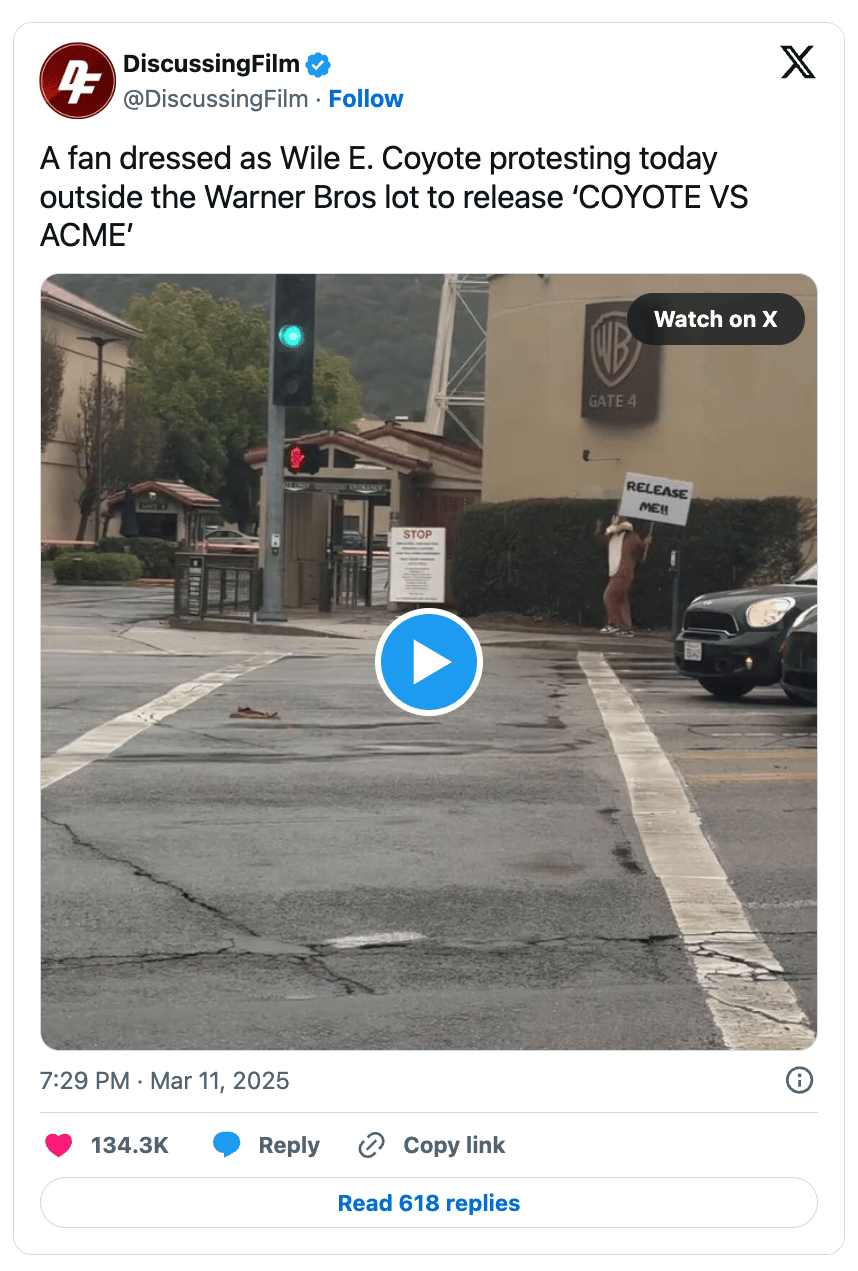- Cinematic Fanatic
- Posts
- How They Wrote Good Will Hunting
How They Wrote Good Will Hunting
Plus: Spinal Tap 2, Mike Flanagan's next project, and Bateman as Batman?
👋 Your watchlist just got better. From overlooked gems to major releases, we keep cinematic tastemakers up-to-date on what’s happening, like what to watch this week:
📺 Long Bright River | 3.13
🎥 Black Bag | 3.14
🎥 Novocaine | 3.14
Read time: 4 minutes | 949 words
TRENDING
🏎️ New F1 trailer from Joseph Kosinski (Top Gun - Maverick) — this Brad Pitt Formula 1 thriller demands to be seen on the big screen.
🕴️ Vegas' new John Wick Experience revealed — step into the Continental with interactive gameplay, themed bars, and assassin shops.
🧪 First look at Peter Dinklage as Toxie in The Toxic Avenger remake—Game of Thrones star transforms into the mutant superhero.
🧬 Universal pairs Glen Powell (Twisters) with Oscar-winner Barry Jenkins (Moonlight) for sci-fi thriller The Natural Order.
🌌 From 1997, Contact’s mirror sequence remains cinema's most jaw-dropping visual illusion — how did they do that?
🏝️ First look at live-action Stitch sparks backlash — fans prefer the cartoon, calling it another Sonic/Shrek design disaster (full trailer here).
🦸♂️ Jason "Bateman" fights Gotham crime in State Farm's star-studded commercial featuring SZA's and Kai Cenat (did they miss the Super Bowl?)
🍅 Chart: Tom Cruise's highest-rated films revealed — four decades of stunts, spectacle and surprisingly diverse roles ranked.
🖥️ Black Mirror S7’s trailer — plus trailers for Jon Hamm’s Your Friends and Neighbors and Mike Flanagan’s House of Chuck and Spinal Tap 2.
FEATURE
🎬 Writing for Actors: Matt Damon and Ben Affleck
Matt Damon and Ben Affleck approached screenwriting from an actor's perspective, giving them unique insights when creating their Oscar-winning screenplay for Good Will Hunting.
Damon and Affleck's journey began not as writers, but as aspiring actors. "We didn't have any aspirations to write. We really wanted jobs as actors. That was our entire goal." This actor-first mentality gave them a unique perspective when they eventually turned to writing.
The genesis of Good Will Hunting came from a college playwriting class, where Damon wrote the first 40 pages of what he believed was "the first act of a movie." He said, "I showed it to Ben... I said, 'I don't know what to do. Like, I'm stuck with this.' And Ben read it and goes, 'I don't know what to do either, but we should do it together.'"

What's particularly interesting is how little of that original material survived - "Only like five pages survived" from the initial draft, including the first meeting with Robin Williams' character. This willingness to evolve the script rather than being precious about their work would become a hallmark of their writing process.
Both credit their high school teacher with blurring the lines between acting and writing. Affleck explains, "The gift we had was we had a high school teacher who didn't make it feel like these were distinct silos. We had us improvise and create our own scenes and sort of semi-write them."
This early training instilled in them the belief that actors are also writers and creators in their own right. As Damon puts it, "The way we wrote the movie was exactly the way Jerry taught us to write in high school."

Perhaps the most valuable lesson from their experience is their deeply collaborative approach to the filmmaking process. When working with actors, they describe being "solicitous" of what actors are feeling "cause they're in it."
Damon recalls telling Minnie Driver, "Whatever you feel, do it," adding with humility, "If it doesn't feel like you should say that, don't say that. We wrote the wrong line."
Affleck expands on this philosophy: "We're not coming from some like, 'We've written this mighty Ta-pros, and speak it as it's written.' We were like, 'This is probably a disaster. I'm sure what you can do is better.'"
Their message to actors was clear: "All of you here who are actors are all writers. You are filmmakers. You're all part of this thing. All of your voices are important. You're all gonna contribute something that we couldn't come up with ourselves. So like, please be generous and give it to us."

Lessons for Writers
For those looking to write scripts that resonate with actors, the Damon-Affleck approach offers several key takeaways:
Understand acting from the inside out: Their background as actors gave them insight into what makes a scene playable.
Hold your writing loosely: Be willing to let go of material that isn't working, even if you love it.
Trust the collaborative process: Recognize that actors bring their own creativity to the table and can enhance what's on the page.
Create space for magic: Some of the best moments may come from improvisation or happy accidents.
Stay humble: Even with an Oscar-winning script, they maintained that actors might have better ideas than what they wrote.
The Oscar-winning duo's experience reminds us that writing for actors is not just about crafting beautiful dialogue or clever plot twists, but about creating a framework within which talented performers can bring their full creativity to bear.
Want to learn more? Attend Buzztown’s live training on Monday:

Monday 3.17.25 at 2pm EST - Writing for Actors
Join actor R. Keith Harris as we talk about writing for actors. You may recognize Keith from Dopesick, The Walking Dead, A Walk in the Woods, and Outcast.
"You can't play subtext if you don't understand the text. You have to build a whole life for this person, even if it's only hinted at. Where did they come from? What keeps them up at night? What are they terrified of? That's your job."
In this lesson, we're going to reverse-engineer his process to write better scripts and craft characters that actors are dying to play.
Simply click "yes" to get your invite |




